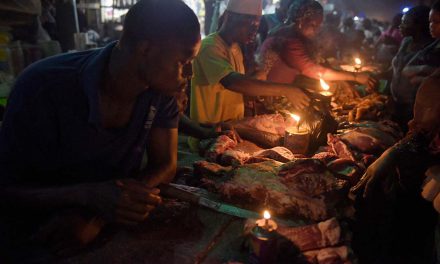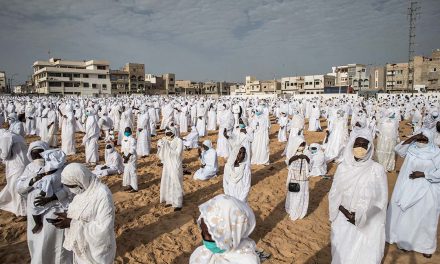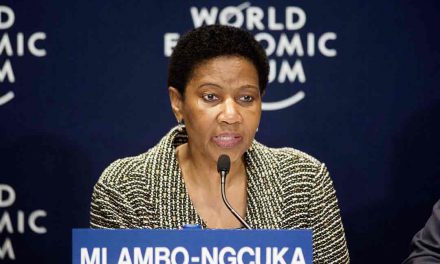In September 2021, the Intergovernmental Panel on Climate Change (IPCC) released its the sixth report. United Nation (UN) Secretary General António Guterres called its findings a “code red” for humanity.
Guterres emphasised the impact of climate change on international peace and security, stating: “The effects of climate change are particularly profound when they overlap with fragility and past or current conflicts. It is clear that climate change and environmental mismanagement are risk multipliers. Where coping capacities are limited and there is high dependence on shrinking natural resources and ecosystem services such as water and fertile land, grievances and tensions can explode, complicating efforts to prevent conflict and sustain peace.”
Despite this recognition by the Secretary General, the effects of climate change on matters of peace and security (often referred to as “climate security”) was not on the agenda at the UN’s recently concluded International Climate Summit (COP26). Reducing emissions and raising international funding for adaptation and mitigation efforts were the summit’s stated goals, and the organisers may have felt that including politically sensitive questions on war and peace would make negotiations towards these goals even more difficult.
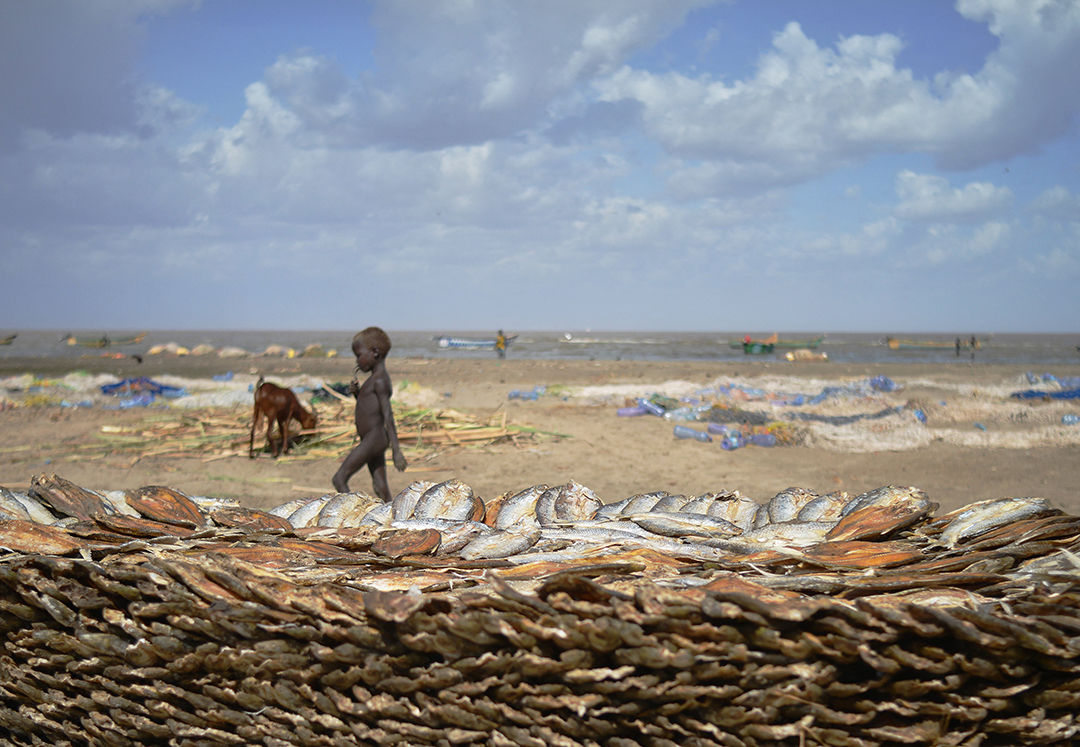
A boy from Kenya’s Turkana county walks past a stack of flattened fish being dried in the sun near Lowarengak on the western shores of Lake Turkana, northern Kenya. Lake Turkana has gradually receded in recent years leading to diminished fish stocks. Photo: Tony Karumba/AFP
Indeed, global action to limit a worldwide temperature rise to 1.5 degrees above pre-industrial levels is the best medium-to-long-term answer to addressing climate-related conflict and security risks. However, its impact on conflict trends is already a reality and will continue to shape the threat landscape in Africa, even if the most ambitious global carbon emissions targets are met. Moreover, injecting much needed climate adaptation financing into countries with fragile institutions, low absorbing capacity, and without taking into account local and regional security dynamics can have the counterproductive effect of generating new conflicts and reducing a country’s adaptive capacity.
As argued by Dr Cedric De Koning and Dr Florian Krampe, who co-lead a project on climate-related peace and security risks for the Norwegian Institute for International Affairs (NUPI) and Stockholm International Peace Research Institute (SIPRI): “it is important that those responsible for climate adaptation initiatives are aware of the risks, are guided by the precautionary principle, take proactive steps to monitor for and mitigate against causing harm, and ensure that their programming is conflict-sensitive.”
As Egypt is to host COP27 this year, it would be good to see climate security – which is most important in the African context – either receive formal billing or at the least be threaded throughout relevant parts of the agenda. In the meantime, UN Security Council member states should continue efforts towards the adoption of a formal resolution on climate security – as tabled by Ireland and Niger in September 2021 – which would induce the council to develop standard procedures for predicting, assessing, responding, and reporting on climate-induced conflict and security risks.
Doing so would help encourage states and regional institutions to factor climate change into early-warning systems more systematically to mitigate climate-related conflict and security risks. It would also help to ensure that adaptation and mitigate initiatives are conflict sensitive and do not generate new tensions and violence.
There are multiple pathways through which climate change can interact with political, social, and environmental stressors to compound existing security vulnerabilities and generate conflict. For example, growing dissatisfaction over rising food costs and livelihood security negatively affected by climate change can undermine the legitimacy of the state and trigger protests and political instability, as seen during the Arab Spring uprisings in the Middle East and North Africa. At the same time, increased political instability and livelihood insecurity has found to favour non-state armed groups (NSAGs) and has helped them to proliferate in areas throughout the Sahel and Horn of Africa.
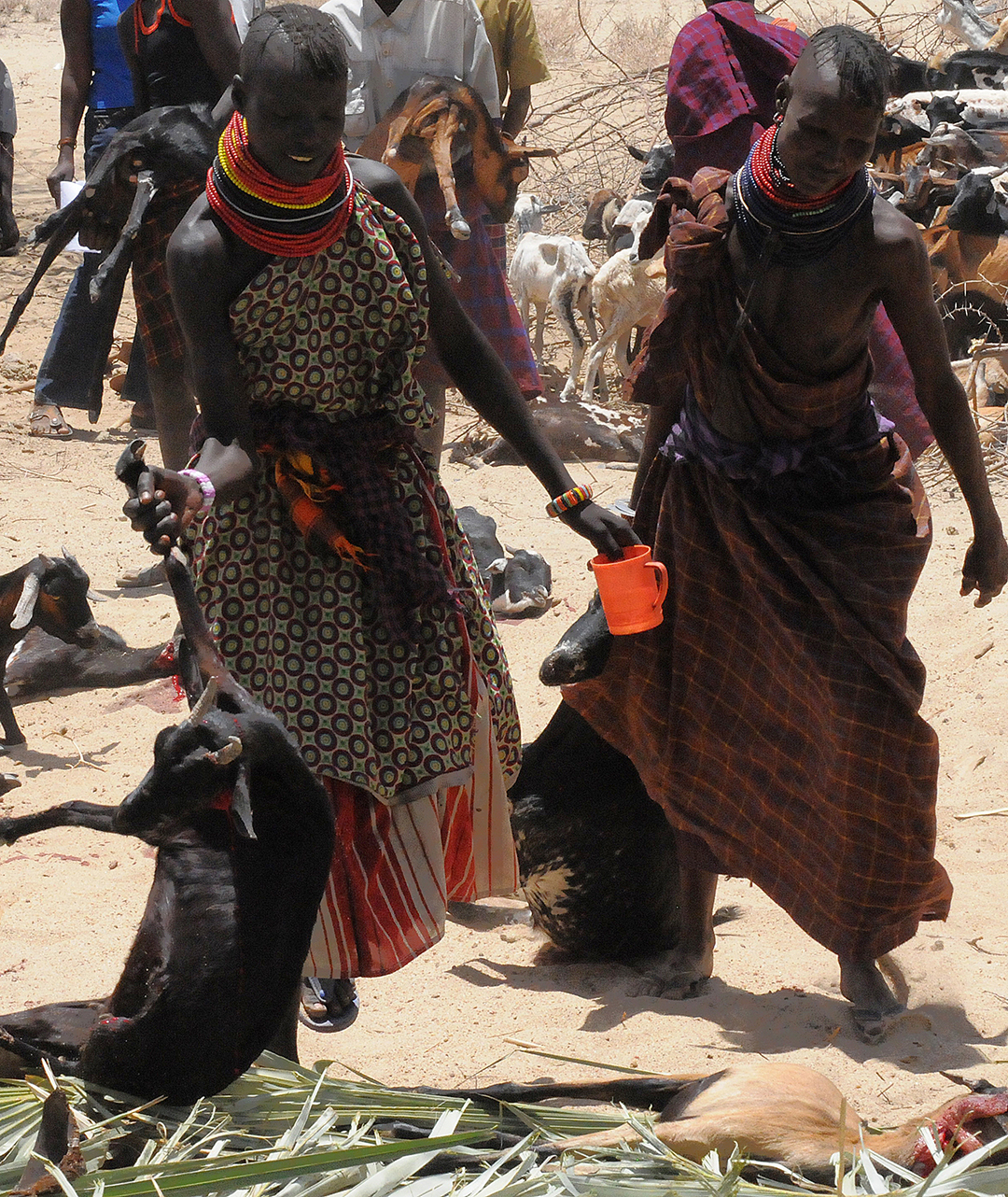
Women carry goats in the village of Loboro in Turkana in Kenya’s extreme north to a makeshift livestock slaughtering point. Nomads in Turkana have been reduced to sacrificing their animals to survive drought. Photo: Simon Maina/AFP
In addition to the negative impacts of climate change on peace and security in Africa, there are also security risks attached to adaptation and mitigation initiatives. A study by the International Crisis Group (ICG) on the link between resource scarcity and violence in the Sahel illustrates the potential for adaptation initiatives to have negative side effects if developed and operationalised without a conflict sensitive lens.
In central Mali, for example, to support livestock farming in the Mopti region, new wells were dug to make the area more attractive to pastoralist communities. The wells attracted Dogon farmers from central Mali, who settled there with the permission of Fulani herders whom the state recognised as having land use rights. Over time, the number of farmers grew and tensions between the herders and farmers deteriorated, with neither the state nor traditional local authorities capable of regulating land use in the area or resolving tensions arising from access to the new water reserves. Subsequently, some Fulani have approached jihadist groups, who are known for rejecting state decisions and helping supporters gain access to land, for assistance. Similar examples of where changes to agro-pastoral systems have resulted in a rapid increase in violent conflict can be seen throughout the Sahel.
Apart from a failure to adequately assess security risks in adaptation programming, it is easy to see how international climate finance might be used by political elites to simply consolidate power and contribute to existing forms of marginalisation and exclusion.
Finance for adaption was a major point of discussion at COP26. In 2009, developed nations agreed to provide $100 billion in funding annually to assist developing countries mitigate and adapt to climate change – a fraction of the amount needed. The highest figure accounted for was in 2019, with developed nations mobilising $78.9 billion.
The Glasgow Climate Pact, agreed to at COP26, made some progress in this area by asking developed nations to double the funding provided for adaptation by 2025. More than $450 million was announced for locally led adaptation approaches and $413 million was pledged to the Least Developed Countries Fund, earmarked for adaptation and mitigation efforts. As De Koning and Krampe (2021) argue: “While these and other commitments fall short of what is needed, and while some of the announcements may amount to greenwashing and should be regarded with caution, the takeaway from a climate-peace nexus perspective is that millions of dollars of climate adaptation funding are going to be spent in the coming years, and the critical question is whether these funds will be spent in ways that contribute to peace.”
Historically, climate change has been treated as an environmental and/or development issue and neglected within security policy. Bridging this divide will help to ensure security institutions are able to mitigate climate-related conflict and security risks, while also ensuring climate change adaptation contributes to peace and stability.
While the issue remains somewhat contentious at the UN Security Council (UNSC), significant progress has been made in recent years both inside and outside the UN system. For example, informal UN meetings (known as “Arria formula” meetings) on climate, peace, and security have been called by several UNSC member states, and climate-security threats are increasingly being incorporated into the UN’s conflict prevention, peacekeeping, and peace building work.
Since 2018, the UN has also seen the establishment of a Climate-Security Mechanism (CSM) within its secretariat, as well as the Group of Friends on Climate and Security and the Informal Expert Group of Members of the Security Council on Climate and Security to support the work of the UN system more broadly in addressing climate-related security risks.
On 9 March 2021, the Peace and Security Council (PSC) of the African Union (AU) held the first meeting at the level of heads of state and government on climate-related security risks, under the title “Sustainable Peace in Africa: Climate Change and its Effects on Peace and Security on the Continent”. Among its recommendations, the PSC called on the AU to:
- Continue mobilising a united African front at the global level, to mitigate the negative effects of climate change more effectively at both national regional and continental levels, and for a continental framework for proactively responding to the security threats posed by climate change related phenomena.
- [Encourage] the AU Commission to mainstream climate change in all its activities, particularly in early warning and prevention of climate change related violent conflicts in the continent and, in this regard, reiterates its request for the Continental Early Warning System to include in its regular briefings to Council, looming climate change-related security threats in the continent.
Drawing on improvements in regional climate modelling and forecasting, there are a growing number of international research institutions looking at the linkages between climate and security to build a more complex and systemic understanding of associated risks and policy solutions.
Greater effort should be made to build on this progress by factoring climate change impacts into early warning systems and assessments, as well as diplomacy, security, and defence policies at the national and regional level across the continent.
Would you like to gain an understanding of your own impact on the environment? Calculate your own carbon footprint here
Stephen Buchanan-Clarke is a security analyst with several years' experience working in both conflict and post-conflict settings in Africa, primarily on issues of peace and security; transitional justice and reconciliation; democratisation and governance; and preventing and countering violent extremism. He currently serves as head of the Human Security and Climate Change (HSCC) project at Good Governance Africa and is a co-editor of the Extremisms in Africa anthology series.



